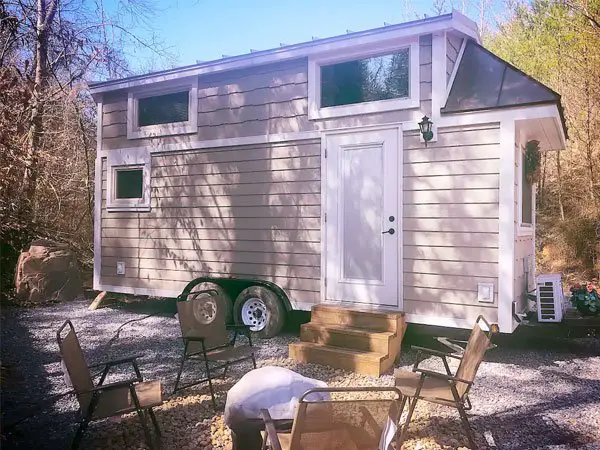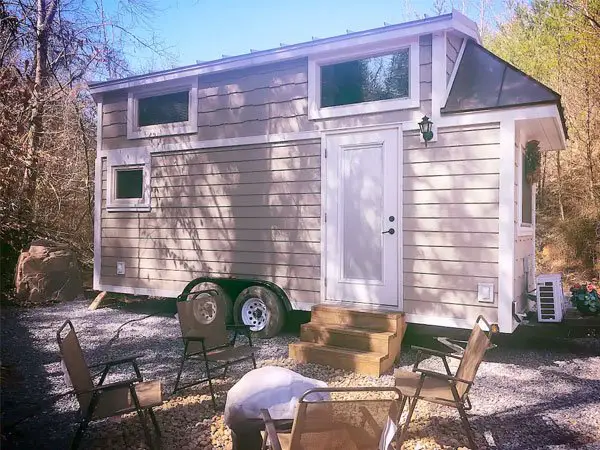Did you know that tiny homes have been growing in popularity as an alternative housing option? However, if you’re thinking about making one your own in Tennessee, you may be wondering: are tiny homes legal in the state? In this article, we’ll explore the legalities surrounding tiny homes in Tennessee, providing you with the essential information you need to know before embarking on your tiny home journey. From zoning regulations to building codes, we’ll uncover the rules and regulations governing tiny homes in the Volunteer State, ensuring you’re well-informed and ready to make your tiny dream a reality.
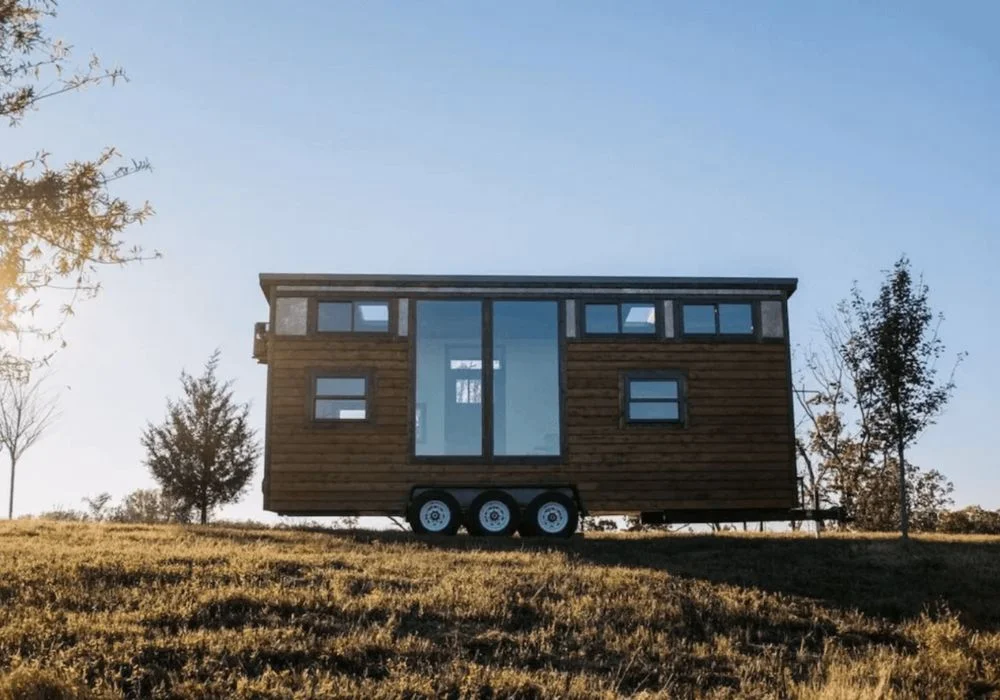
Building Codes and Zoning Laws
Building Codes in Tennessee
When it comes to building codes in Tennessee, it’s important to familiarize yourself with the regulations that govern construction. Building codes are put in place to ensure that structures are built safely and adhere to certain standards. In Tennessee, building codes are established at the local level, meaning that each city or county may have its own specific set of codes. These codes typically cover areas such as structural integrity, fire safety, plumbing, and electrical systems. Before embarking on a tiny home project in Tennessee, it’s essential to research and understand the building codes in your specific locality.
Zoning Laws in Tennessee
Zoning laws play a crucial role in determining where different types of structures can be built within a given area. These laws are put in place to regulate land use and ensure that communities are developed in an organized and efficient manner. Zoning laws in Tennessee can vary from one city or county to another, so it’s important to thoroughly research and understand the specific regulations in your desired location. Zoning laws may dictate factors such as the types of structures allowed, minimum setback requirements, and restrictions on accessory dwelling units.
Implications for Tiny Homes
Tiny homes have gained popularity in recent years for their affordability, minimal environmental footprint, and flexibility. However, their unique characteristics can present challenges when it comes to building codes and zoning laws. The small size and unconventional design of tiny homes may not always align with traditional building regulations. As a result, individuals interested in building or living in a tiny home in Tennessee need to be aware of the implications that building codes and zoning laws may have on their plans. It’s crucial to ensure that your tiny home complies with the local building codes and is located in an area zoned for the type of structure you intend to build.
Exceptions or Variances
In some cases, individuals may be able to seek exceptions or variances to certain building codes or zoning laws that would otherwise restrict the construction or placement of a tiny home. However, obtaining exceptions or variances can be a complex process that requires thorough research, planning, and potentially some negotiation. It’s important to consult with local authorities and professionals familiar with building codes and zoning laws in your area to determine if exceptions or variances are a possibility for your tiny home project.
Classification of Tiny Homes
Defining Tiny Homes
Tiny homes are typically classified as residential structures that are significantly smaller than traditional homes. While there is no universally accepted definition of a tiny home, they are generally characterized by their limited square footage, often ranging from 100 to 400 square feet. Additionally, tiny homes usually focus on maximizing space efficiency and often feature clever design elements to make the most of their compact footprint. These homes can be constructed on a foundation or designed to be portable.
Different Types of Tiny Homes
There are various types of tiny homes, each with its own unique characteristics and design features. Some common types of tiny homes include:
-
Tiny Houses on Wheels (THOWs): These are often built on trailers, allowing for greater mobility and flexibility. THOWs are popular among those seeking the ability to relocate their homes easily.
-
Small Prefabricated Homes: These tiny homes are typically factory-built and delivered to the construction site. Prefabricated homes offer a streamlined construction process and can be customized to fit specific needs.
-
Container Homes: Converting shipping containers into habitable dwellings has gained popularity in the tiny home movement. These homes offer durability, portability, and a unique aesthetic.
-
Small Cabins: These are often designed with a rustic or minimalist aesthetic, providing a cozy and compact living space. Small cabins are usually built on a foundation and can be used as primary residences or vacation homes.
Applying Existing Classifications
In Tennessee, tiny homes are often classified as Accessory Dwelling Units (ADUs), which are secondary residential units located on the same property as a primary residence. However, it’s important to note that this classification may vary depending on the local zoning laws and building codes. It’s crucial to consult with local authorities or professionals familiar with tiny home regulations in your area to determine the applicable classification for your specific project.
Unique Challenges for Tiny Homes
Tiny homes face unique challenges that may not apply to traditional homes. For example, designing and building within a limited square footage requires careful planning and innovative design solutions. Additionally, finding suitable land for a tiny home can be challenging due to zoning restrictions and limited availability. Since tiny homes are a relatively new housing concept, some local authorities may not have established clear regulations specifically addressing them. This lack of clarity can cause confusion and uncertainty for individuals interested in pursuing a tiny home lifestyle. Despite these challenges, many tiny home enthusiasts have successfully navigated the regulations and built their dream homes in Tennessee and across the country.
Permits and Regulations
Permit Requirements
Before you can begin construction on your tiny home in Tennessee, you will need to obtain the necessary permits. Permit requirements can vary depending on your location and the scope of your project. Typically, you will need permits for construction, electrical work, plumbing, and any other relevant aspects of your tiny home. It’s essential to research the specific permit requirements in your area and ensure that your project complies with all local regulations.
Environmental and Safety Regulations
Ensuring the safety and environmental soundness of your tiny home is of utmost importance. Tennessee, like most states, has regulations in place to safeguard residents and the environment. Environmental regulations may cover issues such as waste disposal, energy efficiency, and the use of sustainable materials. Safety regulations include fire safety measures, proper electrical installation, and adherence to building codes. To ensure compliance with these regulations, it’s advisable to work with professionals who have experience in tiny home construction and are familiar with the specific regulations in your area.
Utility Connections
The availability of utility connections, such as electricity, water, and sewage, can significantly impact the feasibility of living in a tiny home. In some cases, utility connections may already be in place on the property where you plan to build your tiny home. However, for instances where utility connections are not readily available, you may need to explore alternative options, such as off-grid living or installing self-sufficient systems. It’s important to research and understand the regulations and requirements for utility connections in your area before deciding on the best approach for your tiny home.
Water and Sewage Systems
Tiny homes typically have unique water and sewage system needs due to their compact size and potential mobility. In Tennessee, regulations regarding water and sewage systems may vary depending on the location and classification of your tiny home. Some areas may require connection to existing water and sewage systems, while others may allow for alternative options, such as composting toilets or graywater systems. It’s essential to research and understand the specific regulations and requirements in your area to ensure that your tiny home’s water and sewage systems are compliant.
Off-Grid Living Options
For those seeking a more self-sufficient lifestyle, off-grid living may be an attractive option. Off-grid living refers to living without reliance on traditional utility connections, such as electricity and water supply. This can involve the use of solar power, rainwater collection, and alternative waste disposal systems. While off-grid living can provide a greater level of independence, it’s important to research and understand the regulations and limitations surrounding off-grid living in your area. Consult with professionals and experts in the field to ensure that your off-grid systems are safe, sustainable, and compliant with local regulations.
Building and Land Use Restrictions
Minimum Square Footage Requirements
In Tennessee, some localities may have minimum square footage requirements that must be met for residential structures. These requirements are typically put in place to ensure that homes are of a certain size and are spacious enough to meet basic living standards. It’s important to research and understand the minimum square footage requirements in your desired location to ensure compliance with local regulations.
Setback Requirements
Setback requirements refer to the distance that a structure must be set back from property lines or other designated areas. These requirements are designed to ensure that structures are positioned in a way that maintains a harmonious balance with neighboring properties and the surrounding environment. Setback requirements may vary depending on the zoning classification and other factors. It’s crucial to be aware of setback requirements in your area to avoid potential setbacks (no pun intended) during the construction or placement of your tiny home.
Restrictions on Accessory Dwelling Units
As previously mentioned, tiny homes in Tennessee are often classified as Accessory Dwelling Units (ADUs). However, there may be specific regulations and restrictions regarding the construction and use of ADUs in different localities. Some areas may restrict the size, design, or purpose of ADUs, while others may have specific requirements for designating them as permanent or temporary living spaces. It’s important to understand and comply with any restrictions specific to ADUs when planning your tiny home project.
Homeowner Association Regulations
If your tiny home will be located within a homeowner association (HOA), it’s essential to be aware of and understand the HOA regulations. HOAs often have specific rules and guidelines that govern the appearance, use, and maintenance of properties within their jurisdiction. These regulations may restrict the size, design, or placement of structures such as tiny homes. Before purchasing or building a tiny home within an HOA, carefully review the association’s rules and regulations to ensure that your tiny home plans align with their requirements.
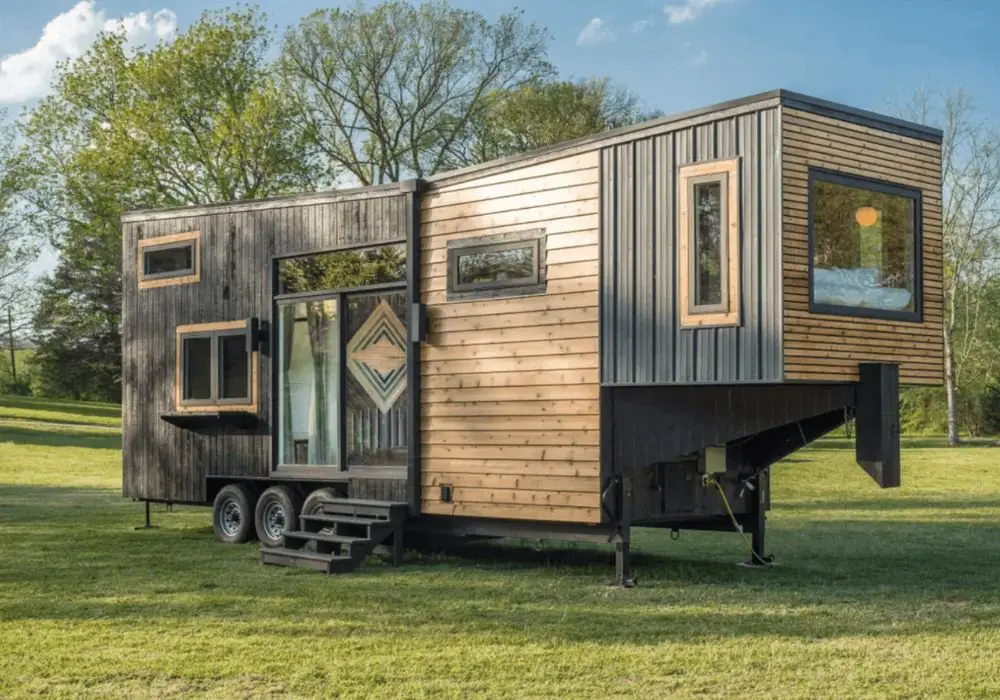
Prevalent Tiny Home Communities
Cities and Counties Embracing Tiny Homes
While navigating building codes and zoning laws can be challenging for tiny home enthusiasts, some cities and counties in Tennessee have embraced the tiny home movement. These localities have recognized the benefits of tiny homes and have implemented regulations to accommodate them. By researching and understanding which areas are more receptive to tiny homes, individuals can find communities where their dream of living in a tiny home can become a reality.
Notable Tiny Home Communities in Tennessee
Tennessee is home to several notable tiny home communities that cater to individuals interested in downsizing and embracing a simpler lifestyle. Some of these communities offer a range of amenities and services specially tailored for tiny home living. Examples include The Preserve at Clinch River in Anderson County and the Tiny House Estates in Newport. These communities provide opportunities for like-minded individuals to connect and share experiences, while also ensuring that residents have access to the necessary infrastructure and resources needed for comfortable living.
Community Design and Regulations
Tiny home communities often prioritize community design and foster a sense of togetherness among residents. These communities may incorporate shared spaces, such as community gardens, recreation areas, and common rooms, to encourage social interaction and a sense of belonging. Additionally, community regulations may address specific issues such as common utility connections, shared maintenance responsibilities, and community-wide events. It’s important to carefully review the community design and regulations before becoming a part of a tiny home community to ensure that they align with your lifestyle and preferences.
Services and Amenities Provided
Many tiny home communities provide a range of services and amenities to enhance the resident experience. These can include trash collection, laundry facilities, high-speed internet access, and access to recreational facilities. Some communities may also offer additional services, such as gardening assistance, community events, or social gatherings. When considering a move to a tiny home community, carefully review the services and amenities offered to ensure they meet your needs and contribute to a fulfilling lifestyle.
Evolution of Tiny Home Regulations
Historical Perspective
The evolution of tiny home regulations in Tennessee and across the United States has been an ongoing process. As the popularity of tiny homes has grown, so too has the awareness and understanding of their advantages and challenges. Initially, there was limited guidance for tiny home enthusiasts, as local building codes and zoning laws had not anticipated this housing trend. However, through collaboration between tiny home advocates, legislators, and local authorities, progress has been made in recognizing tiny homes as a viable housing option.
Current Trends and Developments
Currently, there is a growing interest in tiny homes as a solution to affordable housing and sustainable living. This interest has prompted many cities and counties to revisit their regulations and explore ways to accommodate tiny homes within their communities. Some localities have amended their building codes and zoning laws to better align with the needs and characteristics of tiny homes. Additionally, the tiny home movement has contributed to the development of innovative construction techniques and design solutions.
Advocacy and Legislative Efforts
Advocacy groups and individuals passionate about tiny homes have played a crucial role in shaping the regulatory landscape. Through their efforts, they have raised awareness about the benefits of tiny homes and have advocated for changes in building codes and zoning laws. These advocacy efforts have influenced legislative discussions and prompted lawmakers to consider the unique needs of tiny home dwellers. As a result, some states, including Tennessee, have seen progress in the development of regulations specific to tiny homes.
Future Outlook for Tiny Home Regulation
The future outlook for tiny home regulation is promising, with continuing discussions and developments in this emerging housing trend. The growing recognition of tiny homes as a viable housing option has led to increased collaboration between tiny home advocates, local authorities, and professionals in the housing industry. It’s expected that these ongoing efforts will lead to more clear and standardized regulations for tiny homes, providing more opportunities for individuals to embrace this alternative housing option.
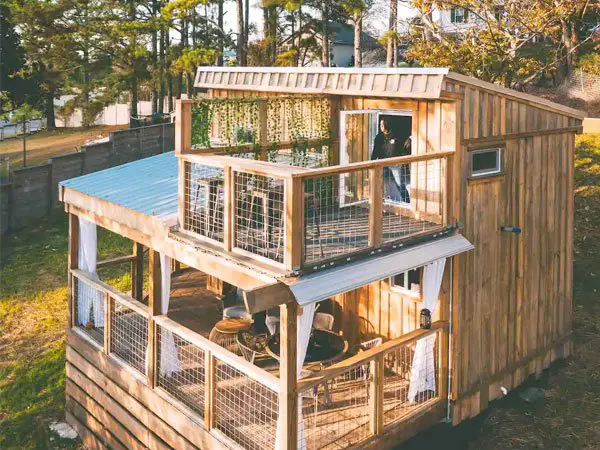
Challenges and Disadvantages
Limited Resale Market
One of the challenges associated with tiny homes is the limited resale market. Traditional homes typically have a broader pool of potential buyers, whereas tiny homes cater to a niche market. This can make it more difficult to sell a tiny home if the need or desire to do so arises. However, with the growing popularity of the tiny home movement, the resale market is gradually expanding, making it easier for tiny home owners to find potential buyers.
Difficulty Finding Suitable Land
Finding suitable land for a tiny home can be another challenge. Zoning restrictions and availability of appropriately sized and priced land can limit the options for tiny home enthusiasts. Additionally, desirable locations close to urban areas or amenities may have stringent zoning laws that do not accommodate tiny homes. To overcome this challenge, individuals interested in tiny homes may need to be flexible and open to exploring locations outside of traditional residential areas or consider joining a tiny home community.
Lack of Financing Options
Traditional financing options for homebuyers may not always be readily available for individuals interested in purchasing or building a tiny home. Lenders may be hesitant to provide loans due to the unconventional nature of tiny homes and the perceived higher risk compared to traditional homes. However, there are specialized lenders and financial institutions that offer loans tailored specifically for tiny homes. Additionally, exploring alternative financing options, such as personal loans or crowdfunding, may be necessary to overcome these challenges.
Navigating Complex Regulations
Navigating building codes, zoning laws, and other regulations can be complex and time-consuming for individuals interested in tiny homes. These regulations can vary from one locality to another and may change over time. Navigating through the red tape and ensuring compliance can be a daunting task. It is advised to seek professional assistance from experts in tiny home regulations, lawyers, or consultants knowledgeable in local laws to ensure a smoother process and avoid unnecessary complications.
Benefits and Advantages
Affordability and Cost Savings
One of the most significant benefits of tiny homes is their affordability. Tiny homes typically have lower construction costs compared to traditional homes, making them a more accessible housing option for many individuals. In addition to lower initial costs, tiny homes also offer potential cost savings in terms of reduced utility bills, maintenance expenses, and property taxes. The financial benefits of tiny homes make them an attractive option for those looking to downsize or live more frugally.
Minimal Environmental Footprint
Tiny homes have a minimal environmental footprint due to their smaller size and reduced resource consumption. They require fewer materials during construction and use less energy for heating, cooling, and daily operations. Additionally, their smaller footprint allows for a more sustainable use of land and encourages a more efficient use of resources. By opting for a tiny home, individuals can make a positive impact on the environment by minimizing their carbon footprint.
Potential for Sustainable Living
Tiny homes provide an opportunity for individuals to embrace a more sustainable lifestyle. With limited space comes the necessity to be mindful of possessions and consumption. Living in a tiny home encourages individuals to prioritize essentials and avoid excessive materialism. This minimalist approach promotes a more sustainable use of resources and can lead to a greater appreciation for simplicity and conscious living. Tiny homes also provide an opportunity to explore off-grid living options, such as solar power and rainwater collection, further reducing reliance on traditional utilities.
Flexibility and Mobility
One of the unique advantages of tiny homes is their flexibility and mobility. Tiny houses on wheels, in particular, offer the ability to relocate and explore different areas without the need for a permanent foundation. This mobility allows individuals to change their surroundings, travel, or experience different communities while maintaining the comfort and familiarity of their own home. Tiny homes provide a level of freedom and adaptability that is not typically found in traditional homes.
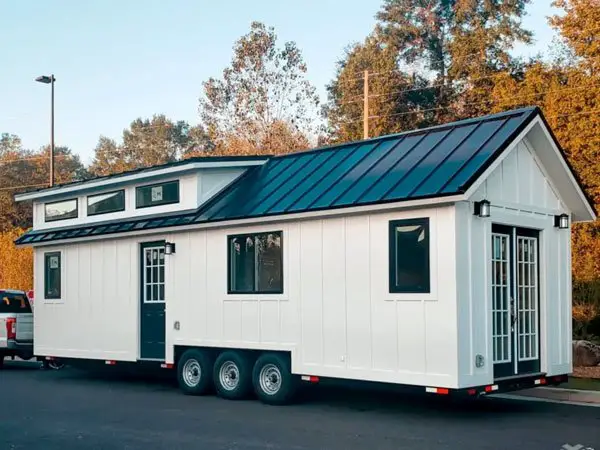
Case Studies
Successful Tiny Home Projects in Tennessee
Tennessee has seen several successful tiny home projects that have served as inspiration and paved the way for others interested in embracing the tiny home lifestyle. One notable example is The Hideaway at Windy Acres in Tracy City. This community combines the beauty of nature with the charm of tiny homes, offering residents an opportunity for peaceful and sustainable living. Another success story is the Be Light Living community in Nashville, which focuses on environmentally friendly living and community engagement. These case studies demonstrate that, with careful planning and adherence to regulations, successful tiny home projects can thrive in Tennessee.
Positive Impact on Communities
Tiny homes have the potential to make a positive impact on communities, both socially and economically. They can contribute to the revitalization of underutilized areas, provide affordable housing solutions, and foster a strong sense of community. Tiny home communities often promote neighborly interactions, shared resources, and a tight-knit community spirit. Additionally, the economic benefits of tiny homes can include job creation in the construction industry and increased tourism in areas with tiny home communities.
Economic and Social Considerations
The economic and social considerations associated with tiny homes can have a ripple effect on the local communities. Tiny home construction can provide a boost to local economies, supporting small businesses such as contractors, builders, and suppliers. Furthermore, the presence of tiny home communities can enrich the social fabric of a community through increased community engagement, shared activities, and a greater sense of belonging. Tiny homes have the potential to create a unique and vibrant living environment that offers an alternative to traditional housing options.
Lessons Learned
As more individuals embark on their tiny home journeys, valuable lessons can be learned from those who have already gone through the process. It is crucial to research and thoroughly understand local regulations before starting your project. Seeking professional advice and guidance, such as consulting with architects or builders experienced in tiny home construction, can provide valuable insights and help navigate the challenges associated with tiny home living. Additionally, tapping into the vast network of tiny home enthusiasts through online communities, forums, and social media groups can provide a wealth of information, support, and inspiration.
Tips for Living in a Tiny Home in Tennessee
Research Local Regulations Thoroughly
Before embarking on your tiny home adventure in Tennessee, take the time to thoroughly research and understand local regulations. Building codes and zoning laws can vary from one city or county to another, so it’s important to be familiar with the specific requirements and restrictions in your desired location. By being knowledgeable about the regulations, you can ensure a smoother process and avoid potential setbacks.
Engage with the Tiny Home Community
Engaging with the tiny home community can provide a wealth of information, support, and inspiration. Connecting with other tiny home enthusiasts, either in person or through online communities, can help you navigate the challenges of tiny home living. These communities can provide insights on local regulations, share experiences, and offer valuable tips and advice.
Work with Professionals Familiar with Tiny Home Construction
When it comes to building or buying a tiny home in Tennessee, working with professionals who have experience in tiny home construction is highly recommended. Architects, builders, and consultants with expertise in tiny homes can guide you through the design, construction, and regulatory processes. Their knowledge and experience can help ensure that your tiny home complies with all necessary regulations and is built to the highest standards.
Consider Off-Grid Living Options
If you are interested in a more self-sufficient lifestyle, exploring off-grid living options for your tiny home may be worth considering. Off-grid living refers to living without reliance on traditional utilities such as electricity and water supply. Research the regulations and requirements for off-grid living in your area and consult with professionals to determine if this is a viable option for your desired lifestyle.
In conclusion, while building codes and zoning laws can present challenges for individuals interested in living in a tiny home, thorough research, careful planning, and professional guidance can help navigate these regulations. Tiny homes offer unique benefits such as affordability, minimal environmental impact, and flexibility. By understanding the regulations and seeking support from the tiny home community, individuals can successfully embrace the tiny home lifestyle in Tennessee.
